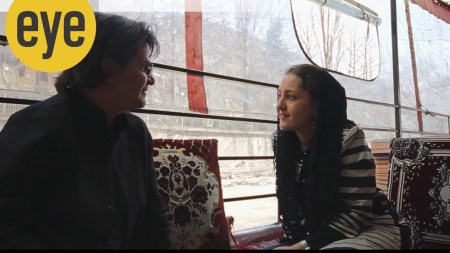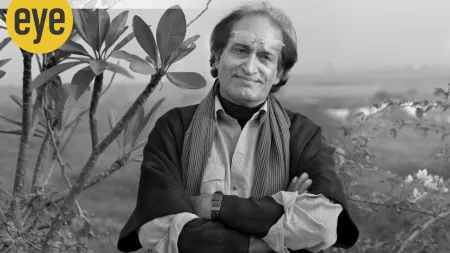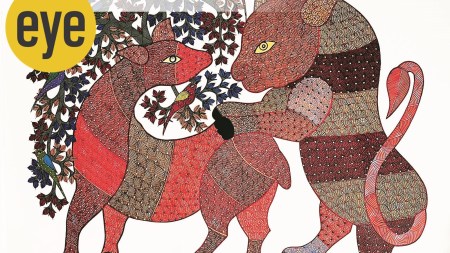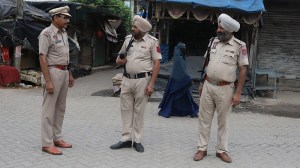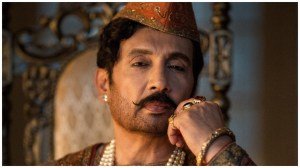- India
- International
Large sections of poor are unlikely to benefit from extension of food grains scheme
Expansion and universalisation of the PDS, pensions, cash grants and employment guarantee schemes in both urban and rural areas are essential to tide through these difficult times.
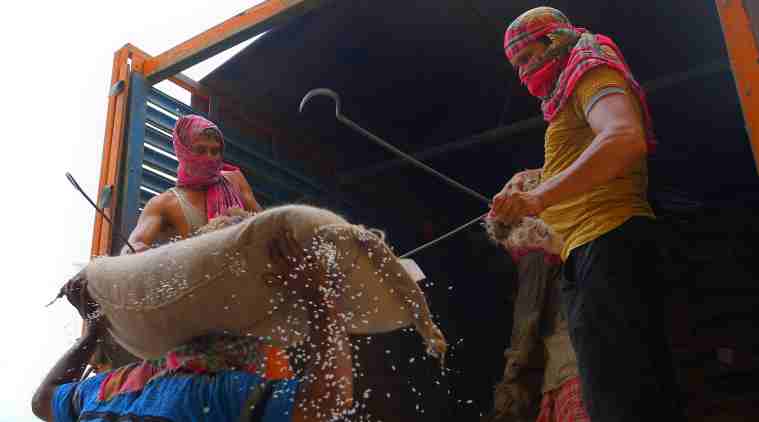 Some states such as Tamil Nadu, Telangana, Himachal Pradesh and Odisha have universalised or expanded PDS coverage with their own funds.
Some states such as Tamil Nadu, Telangana, Himachal Pradesh and Odisha have universalised or expanded PDS coverage with their own funds.
The Prime Minister’s extension of free food grains for 800 million Indians till November is undoubtedly a relief. The granaries of the Food Corporation of India (FCI) are overflowing with more than 100 million tonnes of food grains. But the economy has, by and large, come to a standstill. So, 11 chief ministers and the Congress President Sonia Gandhi had written to the Centre requesting a six- month extension of the free food grains provision. But doubling the rations only for those with National Food Security Act (NFSA) ration cards will hardly feed the deprived hungry.
When the law was enacted in 2013, subsidised food grains were made available to only two-thirds of Indians. Since then, the number of excluded have swelled. Economists estimate that 100 million names have not been updated in NFSA lists. Further, the process of selection of beneficiaries has always been fraught with targeting errors. The insistence on linkage with Aadhaar has deprived scores of genuine beneficiaries. Therefore, despite the enactment of the legislation, a spate of starvation deaths, especially among Dalits, Adivasis and Muslims, has come to light in the last five years. Since the abrupt lockdown in March, nearly 200 people have reportedly died of starvation, financial distress and exhaustion. Most, such as 11-year old Rakesh Musahar’s family in Bihar, did not have active ration cards.
Opinion | That foodgrain stocks lie in public godowns while people are going hungry is a scandal
Some states such as Tamil Nadu, Telangana, Himachal Pradesh and Odisha have universalised or expanded PDS coverage with their own funds. West Bengal Chief Minister Mamata Banerjee has even promised free rations till June 2021. But under the PM’s Garib Kalyan Anna Yojana, none of the non-NFSA beneficiaries across states will receive double entitlements. Further, when the pandemic struck, the poorest states with the highest levels of malnutrition — Jharkhand, Bihar, Uttar Pradesh and Madhya Pradesh — had amongst the largest and most deprived populations.
It is unclear if the migrants will receive additional food grains. After virtually neglecting them for 50 days, the finance minister extended support to 80 million migrants without ration cards, but only for two months. Oddly, however, the food ministry has uniformly increased coverage by 10 per cent for all states, irrespective of their levels of out-migration or in-migration. Such unrealistic centralised quotas have triggered chaos in distribution.

In such a scenario, the concept of One Nation One Ration Card is largely meaningless. Its portability depends on Aadhaar. But after the pandemic, several states such as Kerala, Karnataka, Jharkhand, Goa and Haryana have discontinued biometric authentication at ration shops, to prevent the spread of the infection from the glass sensor. Despite the hype, on July 1, the Integrated Management of Public Distribution portal indicates that only 490 ration cards across 14 states in June had availed of inter-state portability.
The PM has not yet extended cash transfers in Jan Dhan bank accounts of 200 million women. So families who relied on these modest Rs 500 deposits in the last three months are likely to be deprived of liquidity. The Congress party has recommended payment of Rs 7,500 to the poorest families. However, the FM only provided a one-time grant of Rs 1,000 to 32 million National Social Assistance Programme pensioners. Not only have their pensions stagnated in the last decade, but 80 per cent of the elderly, differently-abled and widows are excluded from these central pensions.
The FM has allocated an additional Rs 40,000 crore for the MGNREGA. But the demand for work has reportedly surged so fast that Telangana has already surpassed more than half of its annual budget. There is a compelling need to increase the guaranteed employment to 200 days per year for all households nationwide and boost wages of those who are forced to live on wages less than the minimum wages stipulated for unskilled agricultural workers.
With widespread hunger and an unprecedented economic recession, the country cannot afford shortcuts. Expansion and universalisation of the PDS, pensions, cash grants and employment guarantee schemes in both urban and rural areas are essential to tide through these difficult times.
This article first appeared in the print edition on July 7, 2020 under the title “Scheme Is Not Enough”. The writer is a visiting fellow at the Institute for Human Development
Opinion | Averting hunger during monsoon calls for bold food security measures
EXPRESS OPINION
Best of Express

More Explained
May 05: Latest News
- 01
- 02
- 03
- 04
- 05






